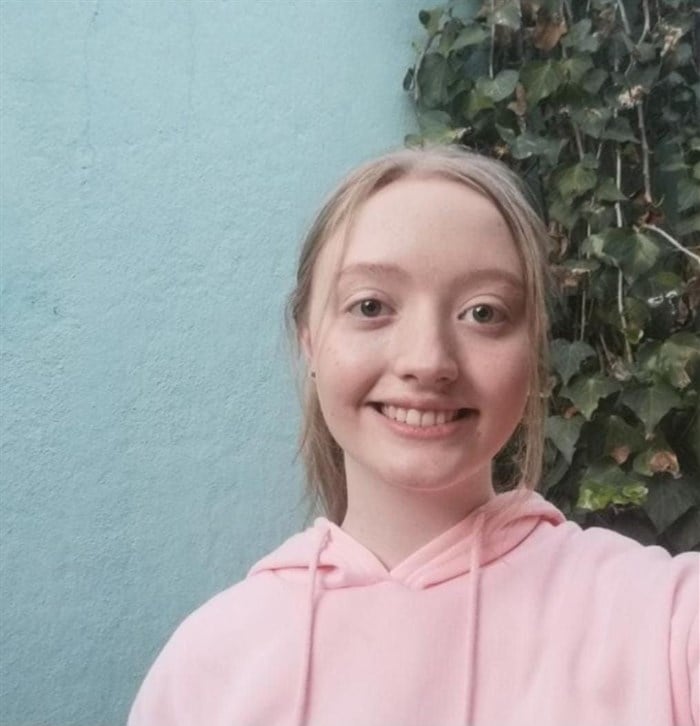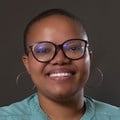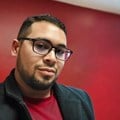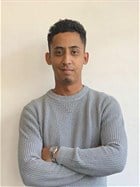Time has passed since the release of the 2023 Matric results and now is a good time to reflect on the success of some of the top achievers. This is a good way for 2024 matriculants to get motivated and inspired to achieve similar results. I have taken the time to find out what goes into achieving excellence of the highest order in this academic realm, which has led me to Tanya du Toit, who is the country's top South African Comprehensive Assessment Institute (SACAI) learner.

Tanya du Toit | image supplied
For those that don't know, SAICA is a non-profit private assessment body that assesses the qualifications of the NSC and General Education and Training Certificate: Adult Basic Education and Training for a diverse group of candidates.
Du Toit hails from Kimberely and completed her final year of secondary education with UCT Online High School. The institution employs a learning model that combines self-paced learning with structured flexibility. This approach has allowed the school to adapt its teaching methods based on data-driven insights.
Du Toit, who achieved six distinctions, unveils what it takes to reach the top...
What motivated you to pursue excellence in your Grade 12 studies at UCT Online High School?
My dad always said good grades would open up more options for me after school. So, I was motivated to work hard because I wanted to give my future self the chance to choose her own path in life.
Can you share some insights into your study habits and techniques that contributed to your success?
Many of my subjects, such as physics, accounting and mathematics were procedural (based on skills or performing a task), so I focused on working through a lot of practice papers and activities. I made sure to analyse all my mistakes thoroughly, identify gaps in my knowledge, and fill them.
I knew I was learning efficiently when I felt uncomfortable. If my technique gave me a headache, it was because it pushed me outside of my comfort zone, which is where true learning and growth take place. For me, it was important to understand concepts instead of memorizing them, even if this was more difficult to do. I would always want to know where a formula came from before using it, and instead of taking notes passively, I would try to create questions that cover the subject content.
I also believe seeing progress is important for learning. If you can't see improvement, you become discouraged. For this reason, it is important to break goals down to smaller parts and to track your progress through smaller checkpoints.
Lastly, I separated my learning space from my resting area. While studying, you want to remove any distractions from the room. For example, lock our phone up or use an app blocker.
How did the support from your parents, teachers, and invigilators impact your academic journey?
My parents encouraged me from a young age to put extra effort into subjects like mathematics. For them, it was important that I had a strong foundation to build upon in my subjects. This foundation supported me all throughout school to achieve good grades.
My mother used to write the words "you can" on all my school books. I didn't understand it as a kid, but I know now how powerful those words are. Belief is an empowering thing. Having even one person believe in you can build so much confidence in yourself. Therefore, I am so thankful for two parents who believe in my abilities.
I was also motivated by the positive comments from my teachers. They gave us so many resources throughout the year, which I was thankful for.
My chief invigilator put in a lot of effort to make everyone comfortable at the exam venue. He kept repeating this one phrase that resonated with me, "Attitude is everything." His encouragement and support made the exam season so much less nerve-wracking.
What role do you believe online education played in your achievements, especially in comparison to traditional classroom settings?
The pro of online schooling is that you get to work at your own pace. You also get to cater your learning to yourself. So, where everyone has to do the same homework in a public school, I got to decide what activities worked best for me. I could spend my time on my weaker areas instead of going over content I was already confident in. Being responsible for your own learning also requires a greater degree of active engagement, which in turn improves your learning.
How do you plan to utilise your gap year to further explore your interests and hobbies?
I have an interest in writing. I love to write stories and poems. During my gap year, I have a lot more time to practice my writing skills. I'm working on improving my world-building, character design and plot-outlining skills through learning about new techniques and applying them. Throughout my gap year, I also plan on trying out new things to discover new interests. For example, I have bought an editing program to explore my interest in editing.
What advice would you give to other students aspiring to excel academically in an online learning environment?
1. Stay consistent. It's better to build a habit out of studying instead of putting in random bursts of energy. Once studying becomes a habit, it requires less motivation, and it comes more naturally.
2. Don't neglect your social life. Find groups to be a part of. Being isolated has a negative effect on your mental health and cognitive functioning. Low social interaction can cause difficulties with memory.
3. Don't ever make assumptions about yourself, like "I am stupid." Your brain isn't fixed; it can change and adapt throughout life. You can improve your cognitive abilities by taking part in activities that challenge and stimulate your brain, which results in new (or stronger) neural pathways.
Reflecting on your journey, what were the biggest challenges you faced, and how did you overcome them?
A big challenge for me was dealing with my self-doubt in school. Although I haven't completely mastered it, it has improved considerably.
Instead of worrying about how well I do in something, I try to focus on how much I enjoy doing something. I try to monitor my thoughts and catch myself when I think something like, "I could never do this", then correct it to, "I could learn how to do this."
Recently, I went for a personality test, and it revealed so much about myself. Learning about who I am relieved a lot of my self-doubt.
How do you feel about being recognised as the top achiever across all SACAI-accredited schools in South Africa?
I was very surprised to hear about being the top achiever. A part of me felt like an imposter because I never expected it. However, I am definitely also happy with my grades.
What are your future academic and career aspirations, and how do you think your gap year activities will shape them?
I initially wanted to study something medicine-related, because I have a passion for health and biology. However, I recently saw a psychologist and she believes my personality is better suited for engineering. So, I hope to attend the engineering week at NWU in July if I can. My psychologist also arranged a meeting for me with a biomedical engineer and a doctor. So, the decision is still in the making.
.






































